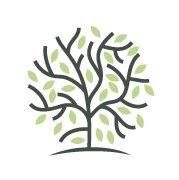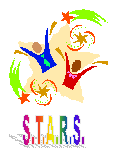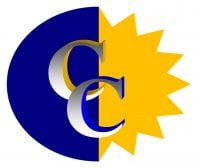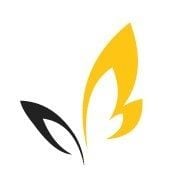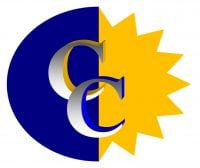Families United Services
Drug Rehab Center in Fayetteville, Georgia
Families United Services is a non-profit substance abuse and addiction treatment center in Fayetteville, Georgia, offering comprehensive and individualized services, including inpatient care, outpatient support, therapy, counseling, education, and peer support, all supervised by licensed professionals and tailored to each patient’s specific needs.
Multiple patients have reported Families United Services as permanently closed.
Research other rehabs in Fayetteville, Georgia, or get help finding an open facility.
About Families United Services in Georgia
Families United Services is a private, non-profit treatment center located in Fayetteville, Georgia. It is dedicated to providing comprehensive, individualized substance abuse and addiction treatment to individuals, families, and couples. The program offers a range of evidence-based services, including inpatient care, outpatient support, individual therapy, group counseling, relapse prevention education, and peer support. All services are provided under the supervision of licensed and experienced professionals who work together to create an individualized treatment plan tailored to each patient's specific needs.
Families United Services offers a variety of services designed to address the recovery needs of people with addiction to drugs and alcohol. These services include medical detoxification to help patients safely abstain from drugs and alcohol, medication-assisted treatment to help reduce cravings and manage withdrawal symptoms, behavioral therapies to address underlying issues that may have contributed to the development of the addiction, and family therapy to help those affected by the addiction heal and repair relationships. In addition, the facility offers peer support groups and aftercare services to help patients stay on the path of sobriety after their treatment has ended.
Families United Services is licensed by the Georgia Department of Behavioral Health and Developmental Disabilities and is accredited by the Joint Commission on Accreditation of Healthcare Organizations. The program has also received the Quality Achievement Award from the Department of Behavioral Health and Developmental Disabilities, and has been recognized as a preferred provider of addiction treatment services by the Georgia Department of Public Health. The facility is committed to providing the highest quality of care to its patients and their families.
Genders
Ages
Modality
Additional
Conditions and Issues Treated
Substance abuse is a severe problem that affects many people in Fayetteville, GA. It is characterized by the excessive and inappropriate use of drugs, including alcohol, medications, and illicit drugs. Substance abuse can lead to physical or psychological dependence and affect social life and relationships. Treatment options include medications, counseling sessions, behavioral therapy, and group therapy. If you are suffering from substance abuse, contact for the latest treatments available.
Opioid addiction is when someone becomes addicted to opioids. This can happen quickly due to any opioid use. Opioid withdrawal can be uncomfortable and lead the user to continue using even if they want to quit. It’s best to receive inpatient treatment for detoxification.
Even if a person doesn’t need inpatient treatment, it’s recommended to start rehabilitation or at least some kind of outpatient treatment. This is because the withdrawal symptoms from opioids can be uncomfortable and unpleasant, to the point that a person could end up using again or worse.
Detoxification should be done to break the physical addiction of opioids. This can be done with opioid replacement therapy, medication-assisted therapy, or a more traditional detoxification program. Intensive outpatient treatment is a form of addiction care that allows patients to continue living at home while undergoing treatment. This type of care is appropriate for patients who have been treated in residential treatment programs. Intensive outpatient programs include regular visits to the facility providing therapy, and patients gradually return to their routine life. IOP benefits most when patients have a supportive family member or friend to help them recover.
The first step to getting into an intensive outpatient program is to attend a detoxification facility. Detoxification facilities are designed to remove substances from the body safely. The patient will attend sessions designed to help them understand their addiction and its impact on their lives. While in an intensive outpatient program, therapy sessions are scheduled three to five times per week, with the patient attending no more than two sessions in one day.
Dual Diagnosis therapy is considered more successful than traditional rehab methods because it treats the addiction and the underlying mental health disorder simultaneously. This comprehensive approach gives Fayetteville, GA patients the best chance for long-term recovery. If the patient does not receive treatment for both conditions, they are more likely to relapse.
Levels of Care Offered
This center offers a variety of custom treatment tailored to individual recovery. Currently available are Detox, Drug Rehab, Dual-Diagnosis, Intensive Outpatient, Outpatient, with additional therapies available as listed below.
Detox is the process by which toxins are removed from the body. In substance abuse, detox refers to the process of getting rid of the drugs that are already there in the system once the patient stops its further intake. Detox is the initial step in the recovery process. The physiological dependence on the drug over a period can lead to withdrawal symptoms.
Depending on the severity of the symptoms, the detox process is managed either medically or clinically. While Medically assisted detox relies on the usage of specific medicines, clinal or social detox relies on providing emotional and psychological support to the patient.
An intensive outpatient treatment program, or IOP, is set up for those struggling with an addiction to begin the recovery process. However, the patient will not live at the facility during treatment.
IOP involves patients coming in and out of a medical office building regularly to receive therapy and other services while continuing their life outside of these visits.
IOP is a step up from drug detoxification or alcohol detox. However, it’s still considered a phase of recovery rather than the ultimate goal. There are many rehabs and treatment facilities available to patients in need of IOP.
Outpatient treatment consists of counseling and therapy sessions. The outpatient treatment process begins with the addict’s initial detox period, lasting about ten days. Outpatient treatment is used for those who are at moderate risk for “slipping back” into the addiction. It is also used for those who are not currently experiencing any side effects from withdrawal, can handle social pressure, have a stable living environment, and have a good support system.
Therapies & Programs
Family therapy is a crucial part of drug treatment and getting sober. It is one of the most effective ways to help addicts stay on the path to long-term sobriety. One of the most important parts of family therapy is the relapse prevention plan. During treatment, therapists and doctors will often sit down with the addict and their family to develop a plan if the addict ever feels like they want to use again. This plan should involve steps the addict and family can take together to prevent them from relapsing in the future.
An addict’s family can play a vital part in helping them to avoid relapse because they can spot the warning signs and help them get back on track before it becomes too much of a problem. Family therapy is one of the most effective ways to help addicts stay on the path to long-term sobriety.
Group Therapy is employed by drug treatment centers like Families United Services to provide the recovering addict with a platform to talk about their feelings and experiences. It also provides for an opportunity to learn from other addicts who have successfully overcome their addiction. It is recommended that all group members be recovering addicts for this type of therapy to work.
This type of therapy involves the use of a variety of therapeutic techniques to help addicts recover from past traumas that might have triggered their substance abuse. During these sessions, therapists will work with the addict to address painful memories and learn how to cope effectively with stressors as they arise.
During these types of sessions, therapists will typically focus on three main goals:
- Identifying and expressing painful emotions associated with past traumas.
- Reducing the effects of stress on an addict’s life by developing more effective coping mechanisms.
- Developing healthy ways of thinking about stressful situations that can help addicts avoid substance abuse issues in the future.
This type of therapy is typically used in conjunction with other types of addiction treatment services. By identifying and dealing with the root cause of addiction, most addicts can overcome their cravings and prevent relapse once they leave rehab.
Many different types of addiction treatment services exist to help addicts safely get sober, but it’s important for recovering individuals to find a therapist or support group that will help them address the root cause of their addiction.
Payment Options Accepted
For specific insurance or payment methods please contact us.
Additional Details
Specifics, location, and helpful extra information.
Fayetteville, Georgia 30214 Phone Number(678) 817-1120 Meta DetailsUpdated November 25, 2023
Staff Verified
Families United Services Patient Reviews
There are no reviews yet. Be the first one to write one.
Fayetteville, Georgia Addiction Information
Prescription opioid use has caused a large increase in the total amount of overdoses in Georgia. Almost 12% of the Georgia population uses illicit drugs each year, and slightly over 3.5% also abuses alcohol at the same time. This does not include those who binge-drink at least once a month, which includes 20% of all Georgians.
In Fayetteville, Georgia, the drug addiction problem is significant. According to recent statistics, about 1,700 admissions to drug and alcohol rehab facilities in Fayetteville in 2012. This means that about 3.5% of the population in Fayetteville abused drugs or alcohol in 2012. There are many different types of drug treatment available in Fayetteville, Georgia. Some common types of treatment include inpatient or outpatient rehabilitation, 12-step programs, and holistic therapies.
Treatment in Nearby Cities
- Douglasville, GA (26.7 mi.)
- Lavonia, GA (103.7 mi.)
- Centerville, GA (72.1 mi.)
- Metter, GA (157.3 mi.)
- Dalton, GA (96.0 mi.)
Centers near Families United Services
The facility name, logo and brand are the property and registered trademarks of Families United Services, and are being used for identification and informational purposes only. Use of these names, logos and brands shall not imply endorsement. RehabNow.org is not affiliated with or sponsored by Families United Services.

